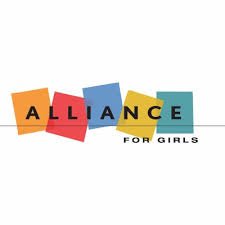Alliance for Girls Launches the When Girls Thrive Initiative, Centers Girls' Needs in Midst of COVID-19

OAKLAND, Calif.: Alliance for Girls, the largest alliance of girl-serving organizations, today announced its When Girls Thrive COVID-19 Response Initiative. The initiative is filling the data gap on the needs of girls during COVID-19, and bringing together advocates, educators, policymakers and agency leaders to ensure that girls' needs are met as California navigates the COVID-19 pandemic and prepares for a post-COVID reality.
"In times of crisis, the needs of girls are too often ignored, to the detriment of us all," said Emma Mayerson, founding executive director of Alliance for Girls. "Even during this challenging time, girls are showing incredible resilience and leadership. To make our communities stronger, we must invest in girls by listening to their needs, including them in decision-making that directly impacts their lives, and investing in the ecosystem of champions – individuals, organizations and schools – they depend on."
When Girls Thrive is a research and advocacy initiative, which includes an online survey of girls and gender expansive youth and girls-serving organizations and champions. The survey addresses the dire lack of data available on the needs and experiences of girls and gender expansive youth up to 24 years' old, making this group particularly vulnerable during this time of increased health risks, extended isolation, and significant disruption and barriers to education and work leading to economic hardship. And the challenges are even more extreme for Black youth and youth of color.
Initial results from the survey indicate that 7 percent of girls across California don't have a safe place to live. For Black, Indigenous, youth of color, that percentage is even greater -- 9 percent for multiracial girls and 12 percent for Black/African American girls.
"A community is only as strong as its girls," said Lateefah Simon, president of Akonadi Foundation. "Through this new initiative, Alliance for Girls is making it possible for us to put girls, particularly Black girls and girls of color, at the center of any COVID-19 response, make data-informed decisions and take a coordinated approach to service delivery, capacity building, and collective advocacy."
Initial findings show that all girls and gender nonconforming youth surveyed need access to basic needs, safety, and support with education. Key highlights to date include:
- 10 percent of all respondents and 13 percent of Black or African American respondents reported not having access to a single caring adult in their lives.
- 12 of all respondents, 15 percent of Black or African Americans and 16 percent of multiracial respondents reported that they do not have access to a private space to communicate with a caring adult or friend.
- 15 percent of all respondents and 24 percent of Black or African American girls do not have access to a device with internet.
- Across all race and ethnicities, school work has been impacted, with over 50 percent of respondents indicating a negative impact on their school work.
- Black and African American respondents are experiencing more isolation and more difficulty accessing support and safety.
- Black, Indigenous, respondents of color report not having basic needs like food, money, toiletries, period products and contraception at a higher rate than white respondents, with Latinx respondents having the highest overall need.
The pandemic has significantly reduced the number of services and spaces that girls can turn to for mental, emotional and physical support and leadership opportunities. Of the approximately 50 girls' organizations surveyed to date, 72 percent are "open" online, only 7 percent have a physical location open, and 26 percent are closed altogether due to severe financial shortfalls.
In response, Alliance for Girls has convened the When Girls Thrive coalition, a statewide coalition that will work proactively with California policymakers and other important stakeholders to address girls' needs during COVID-19 and in the recovery, with the long-term vision of creating equitable communities in which every girl thrives.
"In this moment, our girls and gender expansive young people are struggling like never before, and so are the organizations upon which they depend," said Elmy Bermejo, Northern California Director – External Affairs, Office of Governor Gavin Newsom, and When Girls Thrive coalition member. "If girls' needs and leadership are not centered in the response to this ongoing public health and economic crisis, they will be forgotten and the organizations they rely on will disappear. We refuse to let this happen and I'm honored to join this incredible group of leaders to advance a girls policy agenda in California."
Other members of the coalition include Futures Without Violence, Betti Ono Gallery, Women's Foundation of California, IGNITE California, Young Women's Freedom Center, MISSSEY, among others.
The initiative also hosts regular online events for girls' champions, elected and community leaders, members of the media, and adult allies. For more information and to register, visit the Alliance for Girls' When Girls Thrive initiative webpage.
The survey, conducted by Alliance For Girls' paid youth research team, began in March 2020 and includes responses from nearly 1,000 girls across Northern California, primarily in the Bay Area to date. AFG seeks to expand the survey to include girls, young women and gender expansive youth across the state by the fall.
The initiative is also providing much-needed financial support to young women, girls and gender expansive youth by hiring young women to be youth researchers and providing up to $50 to a select number of respondents, totaling up to $30,000, thanks to funding by the Blue Shield Foundation of California and the Firehouse Fund: Cultivating Sparks. Alliance for Girls is actively seeking additional funding to expand the survey to reach more girls statewide.















































